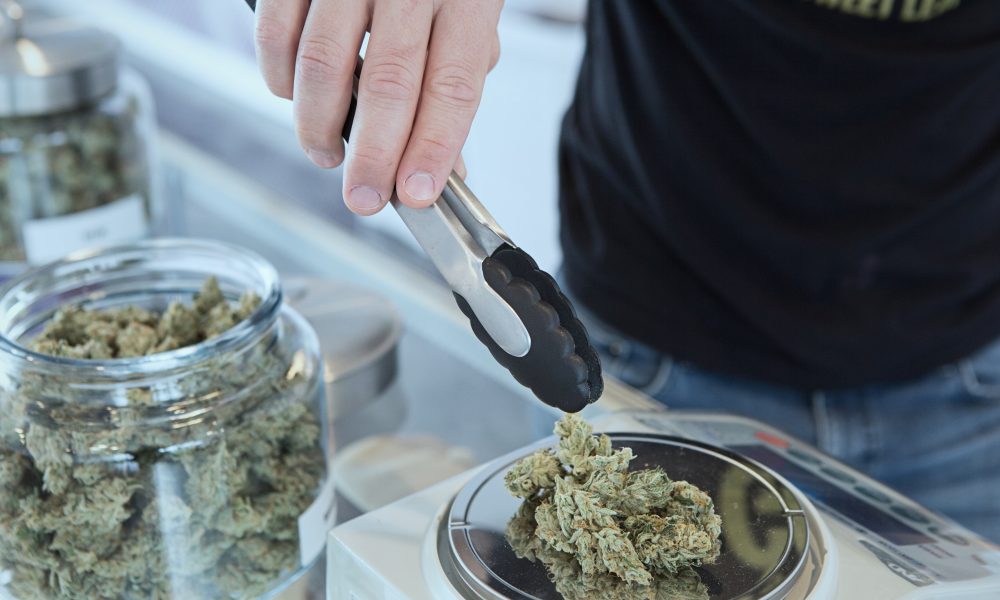A Republican Pennsylvania senator says he will soon be introducing a bill to give independent, in-state medical marijuana growers a chance to sell directly to patients—a reform he says is much needed amid increased industry consolidation.
In a cosponsorship memo circulated last week, Sen. Chris Gebhard (R) said that his legislation would create a new permitting process, allowing any Pennsylvania-based “independent” cannabis grower/processor to open dispensaries as vertically integrated businesses.
Pennsylvania’s medical marijuana law currently says that only 25 businesses can be licensed for marijuana growing and processing, and only five of those licensees can sell directly to patients through vertically integrated dispensaries.
Gebhard said that the Department of Health’s currently permitting rules have “created an unfair system for getting products to patients.”
“The most evenhanded solution to this problem would be to issue two permits to all the independent Pennsylvania based grower/processors who do not currently have one,” he wrote to colleagues. “This will create a free and fair market and will allow these businesses to operate on the same playing field as their competitors.”
While Pennsylvania has yet to enact adult-use legalization, there’s a growing expectation that the state will eventually follow others in the region and begin allowing recreational sales. Some businesses are feeling the strain as anticipation about the policy change builds, especially as wholesale marijuana prices drop and multi-state operators continue to acquire smaller businesses.
Pennsylvania’s cannabis law additionally says businesses with a retail permit can’t operate more than 15 dispensaries, but this trend of company acquisitions has given certain stakeholders more influence in the industry.
A spokesperson for the health department told The Tribune-Democrat in July that while the state’s medical cannabis law does set permit limits, regulators can’t block equity transfers by permit-holders, including “those used by multi-state operators in the medical marijuana industry.”
Gebhard’s proposal would seek to mitigate that economic pressure for independent growers and processors by giving them the option to obtain a secondary permit to sell the product they grow, rather than sell to licensed distributors.
—
Marijuana Moment is tracking more than 1,500 cannabis, psychedelics and drug policy bills in state legislatures and Congress this year. Patreon supporters pledging at least $25/month get access to our interactive maps, charts and hearing calendar so they don’t miss any developments.![]()
Learn more about our marijuana bill tracker and become a supporter on Patreon to get access.
—
Marijuana policy has also become a key campaign issue in Pennsylvania ahead of the November midterm elections, especially with respect to races for governor and a U.S. Senate seat.
Gov. Tom Wolf (D) came out in support of legalization earlier in his term—a decision partly influenced by the advocacy of his lieutenant governor, John Fetterman (D)—and has included a call to implement the reform in his budget proposal this year.
Now the race to replace Wolf is between pro-legalization Attorney General Josh Shapiro, the Democratic nominee, and state Sen. Doug Mastriano (R), who is strongly against the reform, calling legalization a “stupid idea” that has negatively impacted other states.
Fetterman, for his part, is currently running for Senate against the TV personality known as Dr. Oz. And despite support for cannabis legalization standing at 58 percent in Pennsylvania—and despite Oz’s own past comments about the need to fundamentally change federal marijuana laws—the Republican nominee has attacked the state official over his cannabis advocacy.
While both Wolf and Fetterman remain in office in Harrisburg, however, they’re continuing to work to right the wrongs of prohibition. Last week, they announced the launch of a month-long marijuana pardon project to expedite relief for people with low-level cannabis convictions on their records.
Also, President Joe Biden and Fetterman briefly discussed marijuana policy reform during a meeting near Pittsburgh this month. That followed a statement from the lieutenant governor’s campaign calling on the president to use his executive authority to federally decriminalize cannabis.
(The White House was asked about the Fetterman’s request, but said that the administration has nothing new to announce at this point.)
Prior to Wolf endorsing marijuana legalization, the lieutenant governor also led a statewide listening tour to hear what residents had to say about the policy proposal. He touted his role in that tour on his Senate campaign website.
He also talked about his work to “legalize weed for jobs, justice, veterans, farmers and revenue” in a fundraising email early this year.
Fetterman previously said that farmers in his state could grow better marijuana than people in New Jersey—and that was one reason why Pennsylvania should expeditiously reform its cannabis laws.
In 2020, he hosted a virtual forum where he got advice on how to effectively implement a cannabis system from the lieutenant governors of Illinois and Michigan, which have enacted legalization.
The governor, who signed a medical cannabis expansion bill last year, has repeatedly called for legalization and pressured the Republican-controlled legislature to pursue the reform since coming out in favor of the policy in 2019.
Last year, Wolf pardoned a doctor who was arrested, prosecuted and jailed for growing marijuana that he used to provide relief for his dying wife. That marked his 96th pardon for people with cannabis convictions through an ongoing Expedited Review Program for Non-Violent Marijuana-Related Offenses.
More recently, the governor signed a bill that includes provisions to protect banks and insurers in the state that work with licensed medical marijuana businesses.
Medical Disclaimer:
The information provided in these blog posts is intended for general informational and educational purposes only. It is not a substitute for professional medical advice, diagnosis, or treatment. Always seek the advice of your physician or other qualified healthcare provider with any questions you may have regarding a medical condition. The use of any information provided in these blog posts is solely at your own risk. The authors and the website do not recommend or endorse any specific products, treatments, or procedures mentioned. Reliance on any information in these blog posts is solely at your own discretion.







